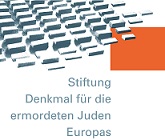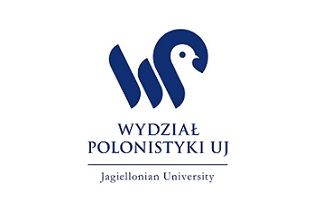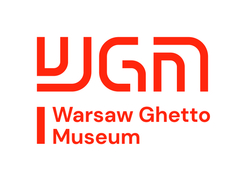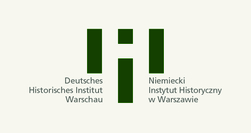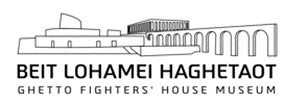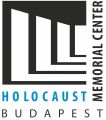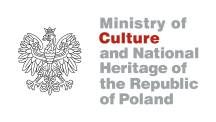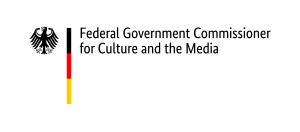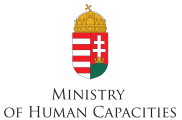The online debate will take place on YouTube on 25 November (Wednesday) at 15:00–18:30 CET.
* Please note that all times are indicated according to Warsaw time, i.e. Central European Time (UTC+1:00).
KEYNOTE
Daniel Levy (Stony Brook University, New York)
Mnemonics and its Discontents: Between Integration and Contestation
PANEL PRESENTATIONS
Jie-Hyun Lim (Sogang University, Seoul)
‘Critical Relativisation’ as a Mnemonic Nexus. On the Global Confluence of the Holocaust and (Post-)Colonial Memories
Josefine Honke (University of Konstanz)
The Ambivalence of ‘Glocal’ Memories Online: Holocaust Survivors as Archetypes for the Depiction of ‘German Victims’ in YouTube Videos
Danielle Lucksted (Stony Brook University, New York)
Diffusion of ‘Global’ Memory Norms on the Local Level: Implications for Poland and Beyond
Agnieszka Wierzcholska (Freie Universität, Berlin)
The Holocaust in Poland: How to Research the Local in an Increasingly Globalised Field of Scholarship?
VIDEO PRESENTATION
Janek Gryta (University of Bristol)
The Limits of Cosmopolitan Memory. Transnational Memory Work in Schindler’s Factory in Cracow, Poland
Ximena Goecke (Pontificia Universidad Católica de Chile)
Chilean-Jewish Holocaust Survivors’ Memoirs as Transnational Literature and Transgenerational Memory
Chair: Małgorzata Wosińska
Commentary: Adam Kerpel-Fronius (Memorial to the Murdered Jews of Europe, Berlin)
ABSTRACTS
Daniel Levy
Mnemonics and its Discontents: Between Integration and Contestation
This keynote addresses the 'short history' of how the Holocaust has been remembered during the last two decades. Particular attention is paid to the shift of Holocaust Memory to its pluralization. Furthermore, we will look at how these globally circulating Holocaust memories intersect with and are localized by national perspectives.
Jie-Hyun Lim
"Critical Relativization" as a Mnemonic Nexus. On the Global Confluence of the Holocaust and (post-)colonial Memories
This paper reflects the global confluence of the Holocaust and postcolonial memories in the post-Cold War mnemoscape. The thaw of frozen memories after the Fall in 1989 released suppressed memories of the colonial past in the tri-continent of Asia, Africa, and Latin America. As a way of evoking empathy in the global public sphere, memory activists in the tri-continent tend to cite the Holocaust as a mnemonic template. The dynamics of comparison, cross-referencing, a juxtaposition to and repulsion from the Holocaust in the global North has been influential in making the postcolonial mnemoscape in the global South. However, the cosmopolitanization of the Holocaust is not flat. Paradoxically, the global memory formation has become a battleground for competing national memories, and cosmopolitan memory often has worked to camouflage the re-nationalization of the remembrance in the name of humanity. The ambivalence of the cosmopolitanization and re-nationalization has been peculiar to the global confluence of the Holocaust and postcolonial memories. Bearing that ambivalence in mind, I suggest the “critical relativization” as a solidary nexus in connecting the Holocaust and (post-)colonial memories mulitdirectionally. Since the right-wingers of the Historikerstreit in West Germany contaminated the term of relativization by presenting Nazism as a response to Bolshevik terror, and, thus, giving an impression to exculpate Nazi perpetrators, the relativization of the Holocaust has become a taboo in memory studies. The emergence of the terms of “multidirectional memories,” “transcultural and traveling memories,” “prosthetic memories,” etc. was a series of innovative efforts to rescue the non-hierarchical comparison of historical traumas from a taboo of relativization. By using the term “critical relativization,” this paper traces the global wave of the Historikerstreit in post-communist Eastern Europe and postcolonial tri-continent. The non-hierarchical comparison would reveal the mnemonic nexus of the Holocaust and (post-)colonial memories. The underlying question is how the mnemonic solidarity can shift from the abstract norm to the normative real.
Josefine Honke
The Ambivalence of „Glocal“ Memories Online: Holocaust Survivors as Archetypes for the Depiction of “German Victims” in YouTube Videos
YouTube enables everyone to upload videos, that are instantly made visible globally. This includes videos with historic content. In this context, one phenomenon barely discussed concerns YouTube-videos depicting survivors of bombings of German cities during the Second World War. With this contribution, I will show how these YouTube-videos (1) make use of narratives and established medial representations of Holocaust survivors as universal symbols and (2) portray themselves as important accounts of local history. The narratives in these videos are highly problematic for they repeatedly focus on the German survivors as victims only and neglect any possible involvement of the interviewees during the Nazi period. This is comparable with the findings in Grandpa wasn’t a Nazi (Welzer et al, 2002). As the study’s title suggests, within familial memories in Germany problematic aspects of the past remain mostly suppressed. Moreover, I will show how Holocaust survivors function as archetypes and how their mediatization serves as the blueprint to similarly construct the witnesses of the bombings as survivors and victims on YouTube. At the same time, the videos foster cultural engagement with the history in their respective geographically defined area where they can achieve significant (manipulative) impact. Therefore, I want to employ the term of municipal memory coined by Malte Thießen (2009) for these narrations. Due to the one-sided focus, the videos are highly ambivalent and can be especially dangerous when politically exploited. Yet, they do show an important part of the history as well as current memory culture and give voice to Germans that were mainly children during WWII. What viewers make of these counter narratives (Bamberg/Andrews, 2004) focusing on Germans as victims rather than perpetrators remains out of control; to admit their existence is the first step towards being able to educate about their critical reception – especially a younger generation that obtains an important part of its historical imagination and knowledge about the Holocaust and national socialism from popular online sources. The ability of future generations to clearly distinguish between different victims – despite the same cinematic devices used to portray them – urgently needs to become a goal of Holocaust education.
Danielle Lucksted
Diffusion of “Global” Memory norms on the Local Level: Implications for Poland and Beyond
International law exists in part to foster some feeling—or at least the appearance—of “global” norms: ideas or practices viewed as essential across national borders and in spite of cultural differences. Indeed, the isomorphic pull of human rights institutions is such that the norms put forth often reach a state of assumption wherein compliance cannot be rationally contested. Nonetheless, world events continue to take on particular meanings in particular contexts. It is therefore unsurprising that when global norms concerning the protection of Holocaust memory are fitted at the local level, it is not always a streamlined process. Once a global precedent is set, do national laws tend to converge or deviate from it/each other? This paper explores this broader question through an analysis of the diffusion of “memory laws” in the aftermath of the Holocaust with a particular focus on the European Union’s 2008 Framework Decision to unify such legislations. Based on sociological theories of isomorphic diffusion, I conclude that memory laws (because they derive from a global model) simultaneously converge and (because they are localized to diverse national contexts) also deviate from each other. This points to the idea that although isomorphism plays an essential role in the diffusion of memory norms, it does not lead to homogeneity. Ultimately, this paper sheds light on the complicated narrative surrounding domestic implementations of international norms: a site where conceptions of the universal (global) and the particular (national) often go head to head over the role of Holocaust memory. I argue that the version of the proposal that passed the EU actually bolsters the centrality of nation-based implementations, thereby validating deviations from the universal model, in part enabling paradigm shifts like Poland’s 2018 addendum to its existing law against Holocaust denial that would penalize claims of Polish complicity in the genocide: a political gesture that opened the door for other states to endorse nationalistic narratives of their own.
Agnieszka Wierzcholska
The Holocaust in Poland – How to research the local in an increasingly globalized field of scholarship?
This paper presents research on the Holocaust in Tarnów, a mid-sized town in Southern Poland, where – before the war – half of the population was Jewish. This study of Tarnów however, is not a local history in the strict sense. It takes on a micro-historical outlook in order to provide a thick description of the social relations and social processes of the Jewish and non-Jewish townsfolk during German occupation. The study acts on the assumption that individual and small groups only seemingly act as autonomous subjects. In reality, all historical actors are deeply embedded and intertwined within the social, cultural, and political context around them. Thus, an in-depth analysis of sources on every-day life of an occupied society in a Polish-Jewish town, allows us to retrace and understand social processes under German occupation, which leads us to new insights into Holocaust history in general. The study on Tarnów addresses many controversial issues such as the role of the Poles as “bystanders” or the question of Jewish agency in the Holocaust. In Germany, I was often confronted with the critique, that the German occupiers are missing in new Holocaust research, which focuses on Polish-Jewish relations. The challenge, that historians still write their books for (national) audiences although scholarship on the Holocaust has been widely internationalized, stipulated many debates on historical interpretation among Holocaust researchers from various academic backgrounds. I would like to present in this paper, how micro-history can contribute to these debates. The study on Tarnów provides a multiperspectivity because here, we can analyze a variety of sources simultaneously: I have studied sources produced by German occupiers, Polish inhabitants, and Jewish victims. This allowed me to sketch out a dynamic field of social interaction under German occupation, in which we can situate Germans, Poles and Jews against a broader background of Holocaust history.
Janek Gryta
The limits of cosmopolitan memory. Transnational memory work in Schindler’s Factory in Kraków, Poland
This paper tests the limits of cosmopolitan memory. It spotlights a unique case study, Schindler’s Factory in Kraków, where a transnational group of activists (from local curators through to representatives of foreign memorial institutions and supranational NGOs) came together to form a multifaceted narrative of remembrance. Contemporary research in memory studies advances the idea of glocalisation, universalisation, and cosmopolitanisation of memory via processes of transnational memory work. The common assumption behind studies of Levy and Sznaider (2006) or Michael Meng (2011) is that cosmopolitan standards of memory spread from Western centres to Eastern peripheries where the emergence of cosmopolitan memory was suppressed under Communism. This paper problematises this account of globalisation. It identifies the sources of cosmopolitan memory in Eastern Europe and demonstrates how, at times, transnational memory work aimed at limiting cosmopolitan interpretations and restoring ethno-nationalist representations. Focusing on Schindler’s Factory, this study analyses the dynamics of competition between varied actors including museum curators, local politicians, representatives of Yad Vashem, and members of a supranational NGO. It reviews the positions and agendas of all the actors and reconstructs the struggle over meanings and representations that played out around the creation of the museum in the Schindler’s Factory. It demonstrates that the version of cosmopolitanism offered in Kraków engaged with contemporary Polish problems, however, it ignored Polish anti-Semitism and perpetration. At the same time, and at the behest of transnational activists, the local curators maintained the German as the Threatening Other thus limiting the cosmopolitan credentials of the exhibition even more. The paper, therefore, attempts to answer who was driving the cosmopolitanisation of memory and how it occurred. It sheds new light on the complex process of transnationalisation of remembrance pointing towards the importance of place and local actors for global memory regimes.
Ximena Goecke
Chilean – Jewish Holocaust survivors’ memoirs as transnational literature and transgenerational memory
About ten thousand Jewish exiled and Holocaust survivors arrived to Chile during the 30’s-40’s. Sixty years later, after a long silence, this memory started to come up in many literary writings: autobiographies and testimonies mostly, but also poems, plays, Hörspiel and novels, written by Holocaust survivors, their children or grandchildren. In this paper, through the analysis of a sample taken out of more than a hundred writings. First, we discuss why these literary works may be considered as transnational literature, showing the fundamental dialogue that they reveal between Jewish experience, European mother-cultures and their experience of settlement in Chile as forced displaced people and hopeful migrants. Then we reflect on how can the study of this kind of literary works help to connect and expand the memory of Holocaust globally, opening new perspectives and giving new meanings to the memory of the Holocaust. Finally, we present some preliminary reflections (based on my current Doctoral theses research) on the transgenerational effects of Holocaust memories in current literary works of younger Chilean-Jewish writers’ generations.


